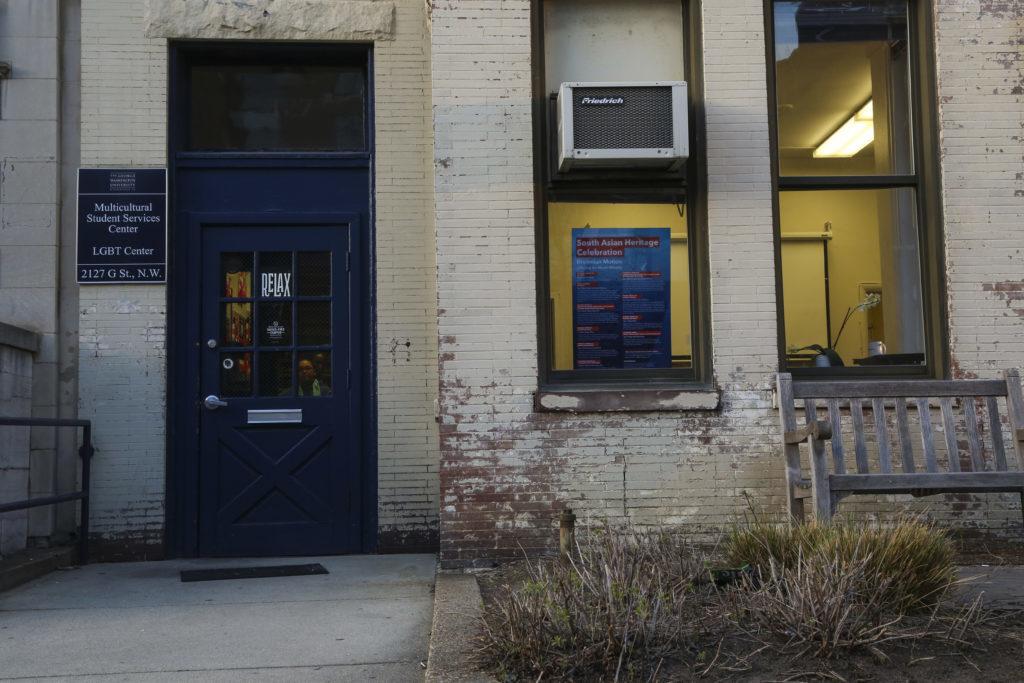Students held a town hall last week to discuss renaming the Cloyd Heck Marvin Center, citing the namesake’s support for segregation.
The discussion was organized by student leaders and held in the Multicultural Student Services Center. Students were given the opportunity to share concerns about the campus center being named after President Emeritus Cloyd Heck Marvin, who was a proponent of segregation.
During the former president’s 32-year tenure, he doubled the size of the student body, tripled the size of the faculty and increased the endowment greatly. Marvin also cracked down on student protests, liberal faculty and publicly defended the University’s segregationist policies.
Students protested the building’s 1971 dedication to Marvin, and over the years students have voiced their wish to have the building renamed.
University spokeswoman Maralee Csellar said students organized the discussion and one staff member was invited to attend.
This isn’t the first return to GW’s roots in recent months: Faculty have begun digging into the University’s ties to slavery and have requested that University President Steven Knapp formally support and fund their research.
Sen. Imani Ross, CCAS-U, said she and Melissa Lawrence, a junior, organized two town hall forums this semester during which they made a presentation on Marvin’s history as president and gave students the chance to discuss renaming the Marvin Center.
“At this point in time, we are really trying to raise awareness and gather input about how students feel about the Marvin Center and Cloyd Heck Marvin’s history as former president of the University,” she said.
Although the discussion was hosted at the MSSC, it was not affiliated with a particular student group, Ross said.
Attendees had mixed responses, Ross said. Some students felt uncomfortable with the campus center being named after Marvin, while others questioned what renaming the building would change.
“There are people that are greatly affected by the name and the power of a name and there are people who aren’t,” she said. “Being able to better understand those students would be a great opportunity.”
Ross said the decision to move forward with renaming the center will depend on what students want.
“I want to make sure I’m doing something that the student body actually wants,” she said. “If a name change is not something that students want, then it’s not something that I want to come out of this project.”
Ross said that in the future, she would like to create a committee to regulate who the University names buildings after to make sure GW “honors its values.”
“I believe this project can really become a much larger dialogue about where GW is now in history,” she said. “It’s 2017 and it’s time to start moving forward in the direction that GW has envisioned for us.”
Nur Robleh, a sophomore who attended the forum, said a majority of students at the forum wanted the name to be changed but that he disagrees. He said that the national trend of renaming buildings tied to historical, racist figures allows people to revise and erase the ideas of those with whom they disagree.
Yale University is the most recent institution to rename a building, announcing last month that Calhoun College would be renamed after months of controversy surrounding the hall and its namesake, John Calhoun, who promoted white supremacy.
“Overall I think there’s a growing phenomenon at a lot of universities to remove the names of people that have racist pasts,” Robleh said. “I think it sets a very dangerous precedent because it leads us to remove people that we disagree with, not just people who were racist.”
Robleh said removing a name does little to promote diversity or inclusion, and that people may forget the lessons history has to teach. He added that a lot of U.S. history is entrenched in racism.
“What about George Washington?” Robleh said. “Our school is named after him and he owned 300 slaves, which is far worse than what Cloyd Heck Marvin did.”
Open discussions help make minority students feel included and safe on campus, Robleh added.
“There should be more conversations where we talk about Marvin’s history, about the history of racism in this country and how we can move forward and progress as a society, but also remember the dark side of our country and our University’s past,” he said.





